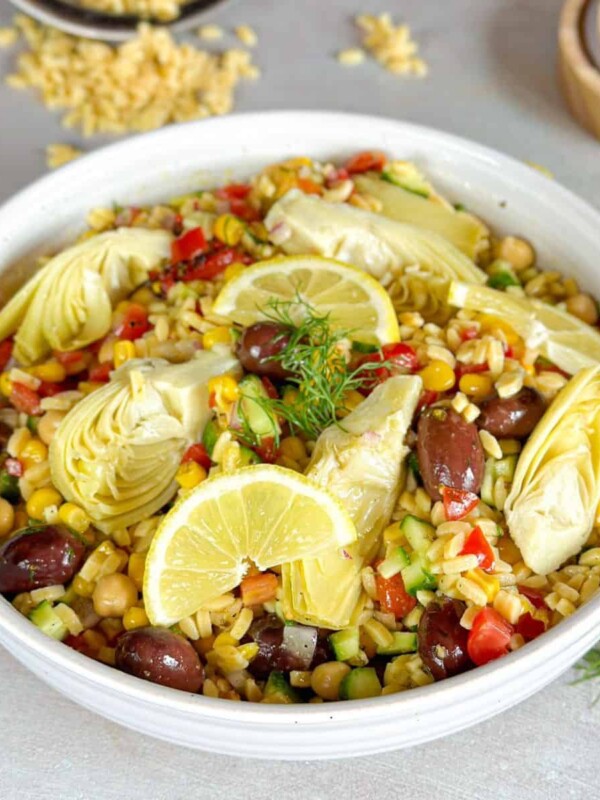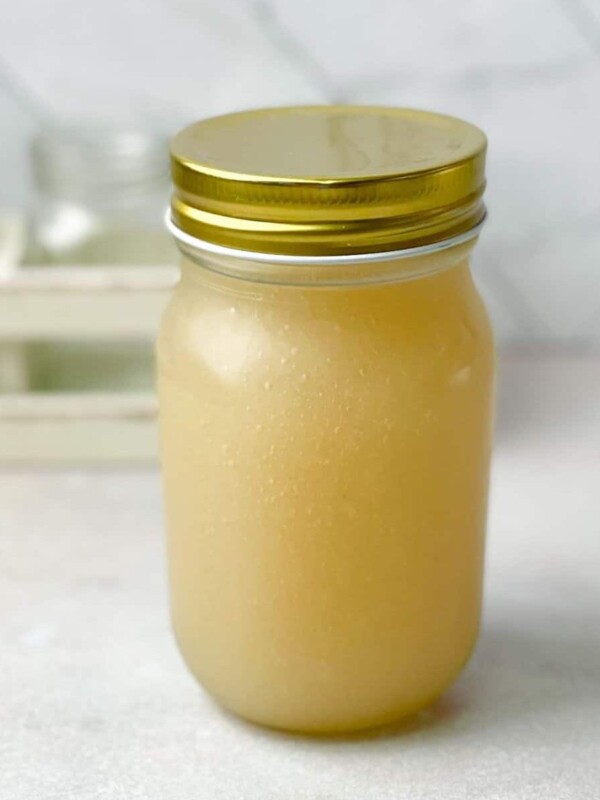This post may contain affiliate links. Please read our disclosure policy.
Cooking oils are dietary fat sources we encounter every day. Choosing the right cooking oil can be challenging with so many options on the market. Do not worry: Many types of cooking oil found in your pantry are health-promoting and perfect for kitchen use.
Find out what works best in your kitchen by exploring the basics of a few common cooking oils-including their uses, flavors, and health benefits.
Don’t Spoil Your Skills with the Wrong Oil
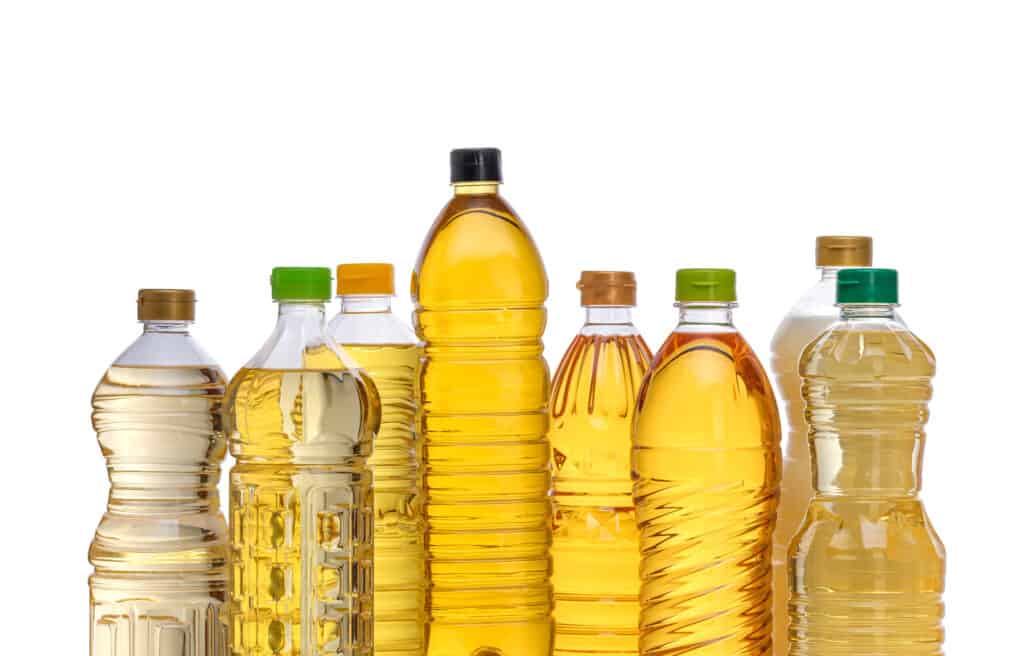
How to Choose a Cooking Oil?
There are numerous types of cooking oils on the market, each with its own distinct flavor and smoke point. Whether you want to bake, fry, grill, sauté, broil, or roast, you will need at least one kind of oil.
Some recipes specify which oil to use, while others do not. And, believe it or not, experimenting with something other than what’s called for may result in a better meal.
Here’s a rundown of the health benefits and best applications for common cooking oils. Keep scrolling below for more in-depth information on health benefits and how to store them properly.
Too Many Options?
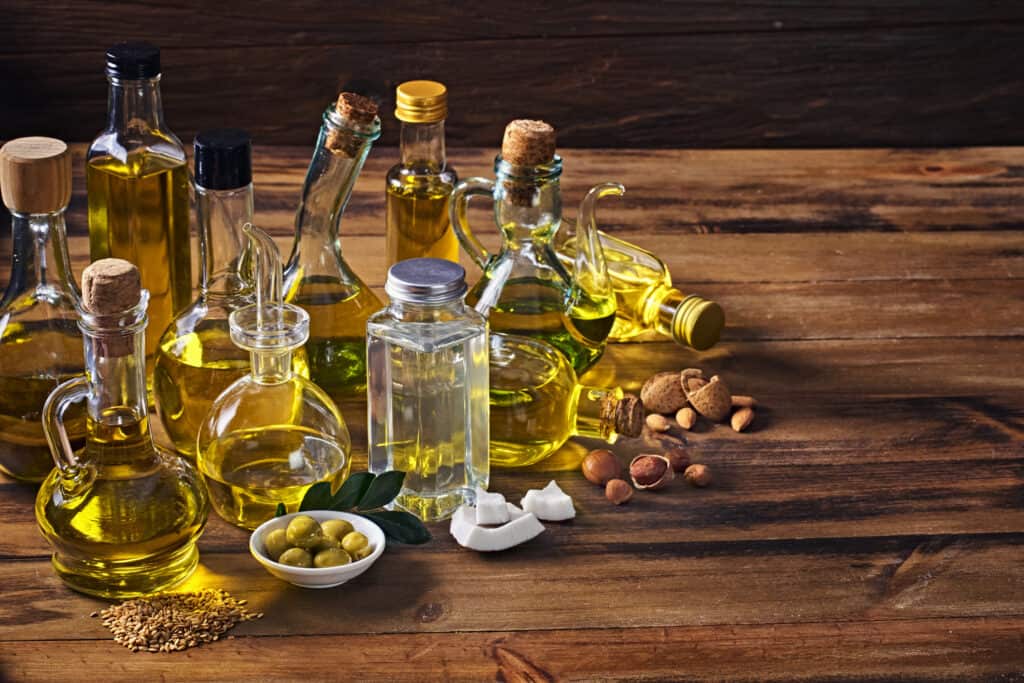
Olive Oil
Olive oil is widely regarded as the best cooking oil due to its heart-healthy properties. It is also one of the primary reasons for the Mediterranean diet’s numerous health benefits. EVOO is frequently used in cold dishes such as dips, salads, and dressings.
Several studies on the benefits of olive oil have revealed that, despite having fatty acids with double bonds, olive oil is good for cooking due to its heat resistance.
It also increases HDL, or good cholesterol, while decreasing LDL, or bad cholesterol, in your bloodstream.
Extra virgin olive oil (EVOO) is preferable to refined olive oil because it contains more nutrients and antioxidants. Store olive oil in a cool, dry, and dark place to keep it from going rancid.
Which Is Better for Your Health?
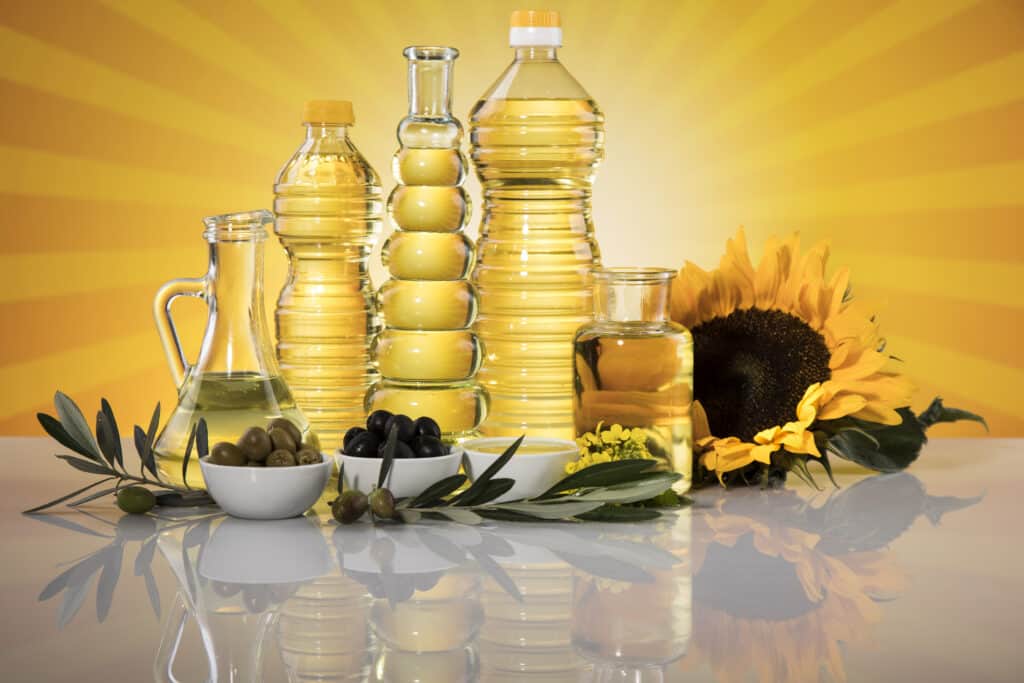
Coconut Oil
When it comes to high-heat cooking, coconut oil is the undisputed winner because nearly 90% of the fatty acids present in coconut oil are saturated, making it highly resistant to heat and high temperatures.
Furthermore, at room temperature, this oil remains semi-solid and can last for years without becoming rancid.
The smoke point of refined coconut oil is 450oF (232oC). It has a neutral, light-coconut flavor and is suitable for sautéing or roasting.
Virgin coconut oil, on the other hand, has a stronger coconut flavor and can be used at temperatures as high as 350oF (177oC). Both can be used in baking in a 1:1 ratio with butter or other oils.
Some of the most well-known advantages of coconut oil include its high content of Lauric acid, a fatty acid that lowers cholesterol and kills bacteria and other pathogens found in the human body.
When compared to other cooking oils, the fats in the coconut oil help to boost metabolism and increase the feeling of fullness.
It’s recommended to store coconut oil in a glass container away from light.
Which Is Healthier?
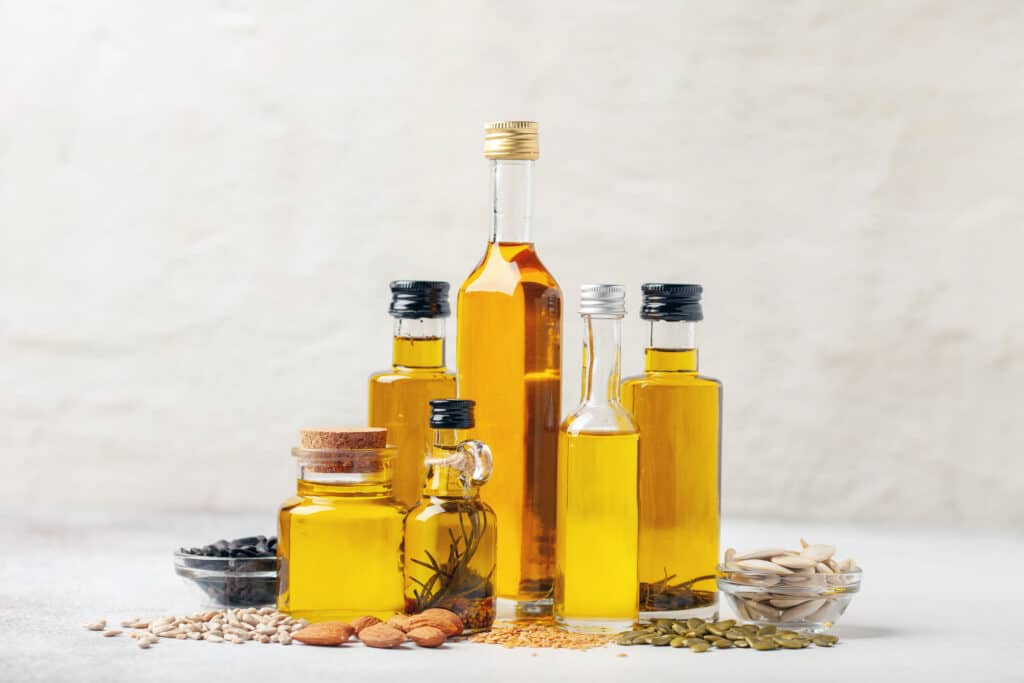
Avocado Oil
Avocados are a fan favorite, whether piled on toast or mashed into guacamole. Avocados, in addition to being a popular food source, are also a source of cooking oil.
Avocado oil is extracted from the fruit’s pulp using a variety of methods. As a result, the oil has a neutral flavor and can be used in salad dressings, brown roasts, and as a fat for searing.
Avocado oil is primarily composed of oleic acid, an omega-9 monounsaturated fatty acid that may aid in the reduction of inflammation and the risk of cardiovascular disease and stroke.
Canola Oil
Canola oil is made from rapeseeds after erucic acid, a bitter toxic substance found in rapeseeds, is removed.
It also has a good fatty acid breakdown because it contains most of the monounsaturated fatty acids and Omega-6 and Omega-3 in a 2:1 ratio, making it suitable for cooking.
One disadvantage of canola oil is that it may begin to taste or smell slightly fishy as it ages. Canola oil has a shelf life of six months to a year after opening and about two years unopened.
Sunflower Seed Oil
Sunflower seed oil has some pretty impressive health benefits. It has been shown to improve heart health, fight cancer, lower bad cholesterol, and increase energy.
Because of its high smoke point, this cooking oil is ideal for searing chicken, fish, or tofu.
Corn Oil
Corn oil is one of the most commonly used types of cooking oil. It’s one of the most popular types of cooking oil because it’s healthy and versatile.
Corn oil has a high smoke point, meaning it is less likely to burn when heated, making it an ideal choice for frying and sautéing. It also has a mild flavor, making it ideal for use in salad dressings and other foods that require a lighter flavor.
It is rich in polyunsaturated fats, making it an ideal alternative to cooking with when looking for foods low in saturated fat.
If you’re looking for low-cost all-purpose cooking oil, this is an excellent choice.
Other Uses of Cooking Oils
Once you’ve discovered your favorite oils, there are numerous ways to put them to use.
- Use extra-virgin olive oil to make your own salad dressings.
- Coat pans to keep them from sticking. Choose an oil with a smoke point that matches your cooking method and heat level. Canola and avocado oils are both excellent choices.
- Replace butter with oil. Because of their subtle flavors and ability to withstand higher temperatures, canola, and avocado oils are ideal for baking. Coconut oil is also useful in baking.
- Drizzle extra-virgin olive oil over cooked pasta or vegetables.
- Replace butter or margarine with extra-virgin olive oil as a dip for bread.
Frequently Asked Questions (FAQs):
Avocado, canola, sunflower, and sesame oil are the best oils for withstanding high heat during frying. These oils have a high smoke point (400°F or higher), making them ideal for cooking at higher temperatures.
Avocado, canola, coconut, grapeseed, extra-virgin olive oil, sesame, and high oleic safflower and sunflower oils are all good choices for sautéing. Unrefined oils with low smoke points, such as flaxseed oil, wheat germ oil, and walnut oil, should not be heated.
Cooking oils derived from plant sources include olive oil, palm oil, soybean oil, canola oil (rapeseed oil), corn oil, peanut oil, and other vegetable oils. Animal-based oils include butter and lard.
How to Preserve Cooking Oil
You should consider the following factors to ensure that your cooking oils and fats do not go rancid, including:
- Do not buy cooking oils in large quantities; instead, buy a small quantity that you will use before it expires.
- You must store oils high in unsaturated fats, such as olive, palm, and avocado, in a dark, cool, and dry environment to avoid oxidation or rancidity.
- The main causes of oxidative damage to cooking oils are heat, oxygen, and light.
- After use, make sure to tightly close the lid of your cooking oil jar or can.
More Blogs You Must Read:
- Instant Pot vs. Rice Cooker?
- Brown Sugar vs White Sugar
- Marinara vs Tomato Sauce
- Maple Syrup vs Agave Syrup
- Almond Flour vs White Flour
- Ramadan Fasting vs Intermittent Fasting
- What Cheese to Serve on a Charcuterie Board
- How To Set Up A Charcuterie Board
- How to Peel, Grate, and Chop Fresh Ginger
- How To Reheat Pasta Without Drying It Out?



